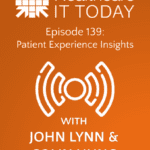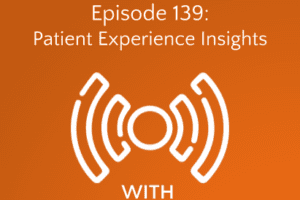Every now and then, a vendor pops up and explains how the next-gen EHR should work. It’s easy to ask yourself why anyone should listen, given that you’re the one dishing out the care. But bear with me. I’ve got a theory working here.
First of all, let’s start with a basic assumption, that EHRs aren’t going to stay in their current form much longer. We’re seeing them grow to encompass virtually every form of medical data and just about every transaction, and nobody’s sure where this crazy process is going to end.
Who’s going to be our guide to this world? Vendors. Yup, the people who want to sell you stuff. I will go out on a limb and suggest that at this point in the health data revolution, they’re in a better position to predict the future.
Sure, that probably sounds obnoxious. While vendors may employ reputable, well-intended physicians, the vast majority of those physicians don’t provide care themselves anymore. They’re rusty. And unless they’re in charge of the company they serve, their recommendations may be overruled by people who have never touched a patient.
On the flip side, though, vendor teams have the time and money to explore emerging technologies, not just the hip stuff but the ones that will almost certainly be part of medical practice in the future. The reality is that few practicing physicians have time to keep up with their progress. Heck, I spend all day researching these things, and I’m going nuts trying to figure out which tech has gone from a nifty idea to a practical one.
Given that vendors have the research in hand, it may actually make sense to let them drive the car for a while. Honestly, they’re doing a decent job of riding the waves.
In fact, it seems to me that the current generation of health data management systems are coming closer to where they should be. For example, far more of what I’d call “enhanced EHR” systems include care management tools, integrating support for virtual visits and modules that help practices pull together MIPS data. As always, they aren’t perfect – for example, few ambulatory EHRs are flexible enough to add new functions easily — but they’re getting better.
I guess what I’m saying is that even if you have no intention of investing in a given product, you might want to see where developers’ ideas are headed. Health data platforms are at an especially fluid stage right now, tossing blockchain, big data analytics, AI and genomic data together and creating new things. Let’s give developers a bit of slack and see what they can do to tame these beasts.













